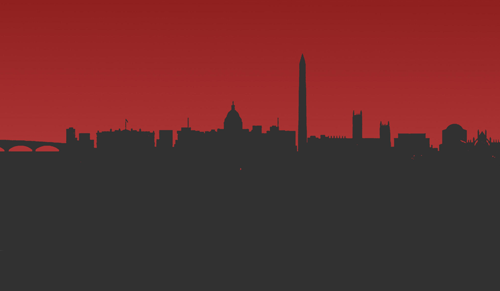
The Quick Take
A quick look at the headlines this week 👀🏃🏻♀️
- China: The world commemorated the 30th anniversary of the Tiananmen Square massacres that took place on June 4, 1989. In China, not so much. There, the history of the event has been erased.
- Trump goes to the UK: The Donald spent the week in the United Kingdom, where the Queen feted him at a state dinner, he met with outgoing UK Prime Minister Theresa May, and honored D-Day.
- Theresa May goes: UK Prime Minister May steps down. On Monday, nominations to be the next UK leader close and voting for who it will be starts. The new UK PM will be announced the week of July 22. (Please write us to let us know who you think will be the next UK PM. We’ll send you a t-shirt and bag if you’re right!)
- Mexico: Trump wants to slap tariffs on Mexico for not stopping the flow of refugees. 🙄 Five percent on all Mexico imports to start, which would increase 5 percent every month the situation goes on. Representatives from both countries met this week to avoid that. They’ve come up with nothing. If Trump makes good on his threat, tariffs on Mexico will start on Monday.
- Sudan: Since Omar al-Bashir stepped down in April, a military council has controlled Sudan’s government. On Monday, security forces opened fire on protesters. Hundreds have died.
- Germany: Andrea Nahles, the leader of the Social Democratic Party, resigned. Why that matters: The SPD is in a coalition with the ruling Christian Democrats and it puts the current government, led by Angela Merkel, in jeopardy.
- FIFA World Cup: For women kicks off today in France, who plays South Korea. France, Germany, and the USA are favorites.
- Kazakhstan: On Sunday, June 9, Kazakhs go to the polls to choose a new president — other than Nursultan Nazarbayev, who has been at the helm since 1991. (There’s a good piece below on this.)
Memories light the corners of my mind…. or don’t
Remembrance dominated this week. Well, in some places.
On Tuesday, the world turned its eyes to China, where 30 years ago, on June 4, 1989, tanks and soldiers descended upon Tiananmen Square. Thousands of unarmed civilians, most of whom were students peacefully protesting for more freedoms, were gunned down.
On Thursday, the world turned to Europe and the beaches on Normandy where 75 years ago, on June 6, 1944, allied troops landed to push Nazi forces from France.
Yet, as leaders across Europe, Canada, and the U.S. gathered to commemorate the allied landing, more commonly known as D-Day, the Chinese government sat in silence. In fact, China’s communist government has been silent about the Tiananmen massacre for the past 30 years — and has worked to erase the event all together. Instead, it has focused on opening up the country’s economy and encouraging growth, all while it also perfected the tools of repression. There was a lot this week on how history is being erased in China, including in Opinion Has It, in which Elmira talked to three scholars about the effects of erasing history.
But even as China forgets, the rise of right-wing populism in Europe — and the U.S. — makes one wonder.
On Tiananmen, 30 years on….
- You can’t find the 1989 Tiananmen massacre on the web in China. It’s forbidden behind China’s Internet “great firewall.” It’s also forbidden to talk about it — or even mention 6/4. Yangyang Cheng learned about the 1989 Tiananmen massacre after coming to America and being able to read about it on an unblocked internet. Read her riveting account. (China File)
- China’s Tiananmen Massacre 30 years ago did not end Beijing’s summer of terror. Bonnie Girard on the untold six months following Tiananmen. (The Diplomat)
- What’s more important: social stability or memory? Louisa Lim looks at young Chinese people who question the value of remembering such violence. (NYT)
- Washington once mistakenly thought the Tiananmen crackdown would be temporary. It was wrong then, just as it’s wrong about a new Cold War now, says Melinda Liu. (Foreign Policy)
- What is the legacy of the Tiananmen massacre? In China there is none, as the country’s leaders have erased the memory of June 4, 1989. Louisa Lim, Sophie Richardson and Chris Patten join Elmira to discuss. (Project Syndicate)
On D-Day:
Michele Heller’s father served on D-Day. His experience is a way to illustrate the personal ramifications of anti-immigrant, anti-Semitic, racist sentiment. Nationalist fervor, economic crisis and other factors resulted in the Nazis’ ascendance, their anti-Jewish laws and eventually the war that took the lives of many, both on the battlefields and in the concentration camps. (Washington Post)
Trump goes to London
- Trump landed in Britain this week, at a time when the country is gripped in acute political crisis. His visit will accomplish nothing except for a publicity stunt photographed with Britain’s queen, according to Anne Applebaum. (Washington Post)
- Brexiters beware: Donald Trump hasn’t hesitated to insert himself into UK politics — and he won’t hesitate to trample all over British sovereignty, says Zoe Williams. (Guardian)
- Optics were good for Trump’s visit to the UK, but his talks with the British government were thin on substance, says Kim Sengupta. (Independent)
- Trump wants to slap tariffs on Mexico for not stopping the flow of refugees. Here’s the thing: Mexico can’t end the migrant flow by itself, says Shannon O’Neil. But it can — and likely will — raise tariffs on swing states. (Bloomberg)
- Having spent time along the border…”it is apparent to me that the crisis is one created by Trump, who has increasingly limited the legal right to request asylum while stoking fears that migrants pose a national security threat,” writes FPI Fellow Alice Driver. (CNN)
- Trump’s Mexico tariffs don’t make sense, but Americans will pay a steep price anyway if they go into effect, says Christina Fattore. (The Conversation)
To read this entire edition of FP Interrupted, click here. To subscribe to FP Interrupted, click here.


